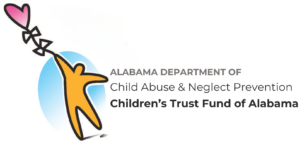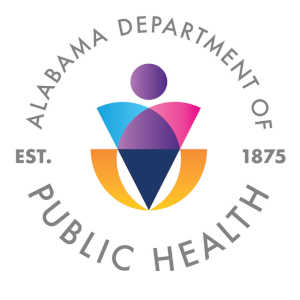When a parent struggles with addiction, it doesn’t just affect them—it can ripple through the entire family, leaving a significant impact on their children. According to the Substance Abuse and Mental Health Services Administration (SAMHSA), about 1 in 8 children lived with at least one parent who had a substance use disorder (SUD) in 2016-2017.[1] Alarmingly, data from 2015-2019 shows that children younger than 12 had a higher likelihood of having a parent with an SUD than children older than 12.[2]
For children, growing up in this environment can shape their emotional well-being, relationships, and even their view of themselves. While it’s not an easy subject to discuss, talking openly with kids about a parent’s addiction can help them process their feelings, find reassurance, and begin to heal.
 How a Parent’s Addiction Can Affect the Entire Family
How a Parent’s Addiction Can Affect the Entire Family
When a parent struggles with addiction, it impacts everyone in the family, not just the person using substances. Addiction can disrupt routines, strain relationships, and even break trust between family members.
For children, this can create confusion, fear, and even feelings of guilt as they try to make sense of the situation. Kids may feel like they need to take on adult responsibilities, act out for attention, or withdraw emotionally to cope. Younger children may not fully understand what’s happening but sense that something is wrong. The unpredictable nature of addiction can leave them anxious or insecure.
For older children, the effects of a parent’s addiction can be more complex. They may feel embarrassment, anger, or resentment, especially if they’ve had to take on caregiving roles for younger siblings or the addicted parent. Older kids are also more likely to recognize patterns of broken promises or inconsistent behavior, which can lead to a loss of trust.
At the end of the day, each child’s reaction will vary based on their age, personality, and support system.
The Importance of Having the Discussion
Although talking to your kids about a topic so heavy can feel uncomfortable, having this discussion is vital for their understanding and well-being. Kids are incredibly perceptive, and they’ll likely sense that something is wrong even if you don’t talk about it. Ignoring the issue can lead to confusion or misunderstandings, which may cause children to blame themselves or make up their own explanations for what’s happening. These consequences can be detrimental to their mental health and emotional development.
By addressing the topic openly and honestly, you give them the tools to process their feelings and reassure them that they are not responsible for the situation. It’s not about oversharing or burdening them with adult concerns but rather about providing clarity and building trust. It is also an opportunity to set the record straight, offer your reassurance, and let them know they are loved and supported.
How to Educate Children About Addiction: What to Say
Many parents don’t know where to start when it comes to approaching the topic of substance abuse and addiction with their kids–especially when one of the parents is the one struggling.
When talking to kids about addiction, it’s important to choose clear, simple, and age-appropriate language.
Talking to Younger Children (ages 5-8)
Young children may not understand what substance abuse is, and if they do, it might be scary for them. However, they can still grasp the concept of someone not feeling well and needing to see a doctor to get better.
- “Mom/Dad has a sickness called addiction. It makes them act differently sometimes and do things that aren’t good for them. This isn’t your fault, and we’re working on helping them get better.”
- “You might notice that Mom/Dad has been acting strange or missing things lately. That’s because they’re not feeling well and need help to get better, just like if they had a bad cold or a broken arm.”
Talking to Older Children (ages 9-12)
Older children may have a basic understanding that drugs and alcohol are bad. However, they may still not be able to understand why mom or dad is behaving the way they are.
- “Addiction is a disease that affects how the brain works. It makes it hard for people to stop using a substance, even if it’s hurting them or others. This isn’t because they don’t love us or because of anything you’ve done.”
- “Dad/Mom is going to treatment to get help for their addiction. It will be a lot of work for them to get better, but we’re here to support each other as a family.”
Talking to Teens
Teens have likely picked up on what’s going on, so it’s important to be straightforward and open with them.
- “Addiction is a medical condition that changes how the brain works, leading to behaviors that are hard to control. It’s not about willpower or being a bad person. It’s an illness, and like any illness, it needs treatment to get better.”
- “I know this situation has been hard for you, and it’s okay to feel angry, confused, or upset. I want you to know you can always talk to me about how you’re feeling, and we can get through this together.”
Key Phrases for All Ages
- “You are not responsible for what’s happening.”
- “You are loved, and nothing about this changes that.”
- “It’s okay to feel however you feel—there’s no right or wrong way to react.”
- “I’m here to answer your questions the best I can, even if I don’t have all the answers right now.”
When is the Right Time?
Timing is everything when it comes to sensitive conversations like this. Ideally, choose a moment when the household is calm, and you can give the child your full attention. Avoid discussing it during a crisis or when emotions are running high, as this might make the child feel overwhelmed or unsafe.
If a parent is actively seeking treatment or making changes, that can be a good opportunity to explain what’s happening. Let them know this is a positive step toward recovery. However, if the situation is ongoing, it’s still important to address it rather than wait for the “perfect” time.
Additional Tips for Success
Talking to a child about a parent’s addiction isn’t easy to do. Remembering these tips can help you during the conversation:
- Use a calm, supportive tone – Your attitude during the conversation will affect how they process the information. Stay calm, even if the topic feels emotional or heavy. If you panic, they’ll panic.
- Encourage them to ask questions – Let them know it’s okay to ask anything and that you’ll do your best to answer honestly.
- Use the right language – Speak about addiction as an illness or a disease, not a moral failing, to avoid creating feelings of shame or resentment toward the parent or others who struggle with addiction.
- Involve a professional if you need to – A therapist or counselor with experience in family addiction can guide these difficult discussions.
- Keep the conversation going – Be sure to check in regularly to see how your child is feeling and whether they have more questions or concerns.
- Prioritize stability in everyday life – When addiction creates chaos in the home, making even the smallest efforts to create predictability and stick to your normal routine can provide them with a sense of safety during uncertain times.
References:









